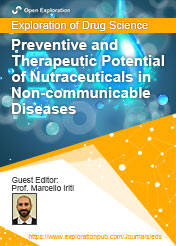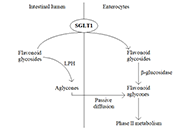
Preventive and Therapeutic Potential of Nutraceuticals in Non-communicable Diseases
Guest Editor
Prof. Marcello Iriti E-Mail
Professor of Plant Biology and Pathology at the Department of Biomedical, Surgical and Dental Sciences, Milan State University, Milan, Italy
Research Keywords: bioactive phytochemicals; nutraceuticals; nutritional therapy; ethnopharmacology; medicinal plants; traditional medicine
About the Special lssue
Epidemiological observational studies have associated healthy dietary styles rich in nutraceuticals with a reduced risk and incidence of chronic degenerative diseases including cardiovascular disease, type 2 diabetes, metabolic syndrome, obesity, certain types of cancers and neurodegenerative disorders. For example, the Mediterranean diet can be considered the archetype of a health-promoting diet by virtue of the phytochemical diversity of its food components that may contribute to primary and secondary prevention of heart attack or stroke, cancer chemoprevention and weight control thus promoting healthy ageing. In this context, a plethora of preclinical (in vitro/in vivo) studies have emphasized nutraceuticals as anticancer, immunomodulatory, antidiabetic, antiobesity, cardioprotective and neuroprotective agents, in synergy with healthy diets and lifestyles. However, correlation is not causation, and the preclinical evidence should be further substantiated by human intervention studies, in particular by randomized controlled trials at the top of the evidence-based pyramid. Furthermore, the oral bioavailability of nutraceuticals, their pharmacokinetics, pharmacodynamics, mechanism of action and safety should be much more investigated. In this very wide context, we invite investigators to submit both original research and review articles that explore all these aspects.
Keywords: nutritional therapy, functional foods, mediterranean diet, evidence-based medicine, phytotherapy, chemoprevention, chronic degenerative diseases, bioavailability
Published Articles

